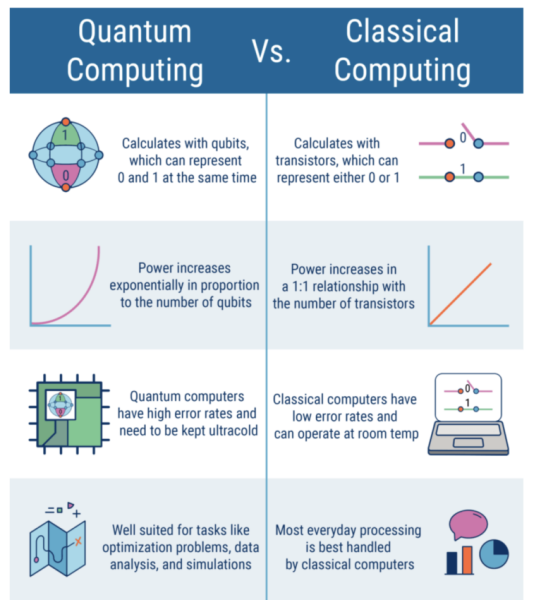What IBM Quantum Computers Mean for Crypto Asset Security

Crypto businesses eyeing robust security may soon need to take notice of IBM’s first practical applications of quantum computers. The computing giant will unveil 10 new projects that use algorithms used in supercomputers able to crack traditional security measures.
IBM will launch several projects that combine quantum calculations and conventional supercomputing in what is believed to be the first practical application of quantum computers. Unlike traditional machines that store information in ones and zeros, quantum computers use transient subatomic elements called qubits to store data.
The Potential of Quantum Algorithms
IBM’s project reportedly marks the first time that a company is able to control qubits so that the data they hold can be used in scientific calculations. This breakthrough will enable the development of quantum algorithms. However, commercial applications are some way off, according to IBM’s vice-president of quantum, Jay Gambetta.
“It’s going to take a while before we go from scientific value to, let’s say, business value. But in my opinion, the difference between research and commercialization is getting tighter,” he said.
The technology is expected to solve problems previously untenable by traditional computers, like the so-called traveling salesman problem. The puzzle is minimizing the distance a salesman travels on local highways while visiting different parts of the same region.

Quantum Computing vs. Traditional Computing. Source: CB Insights
Chinese researchers claimed to have found a way to optimize Schnorr’s algorithm to factor large prime numbers using a quantum computer in January. While their research was found to be theoretically sound, their findings were never experimentally proven.
Quantum Implications for Crypto Security
IBM’s efforts may threaten the encryption algorithms used in banking and by governments. Japanese tech giants Fujitsu Siemens and the Riken Institute announced they would launch their quantum computer in 2023. However, there has yet to be any word of commercial applications, though the project has uses in research and development.
Now, the development of quantum algorithms, catalyzed by IBM’s efforts, could threaten long-held cybersecurity standards, such as the 256-bit Asymmetric Encryption Standard. This could endanger crypto assets held on exchanges that use the standard to protect customer information.
The danger is magnified as banks show increasing interest in tokenizing real-world assets. Before assets can be exchanged, they must be held by custodians that employ reasonable security measures.
If custodians don’t strengthen security, bad actors could link asset holders with big-ticket assets like property or cars. This loophole could expose owners and recipients to robbery in the real world or ransomware attacks to regain access to assets. It could also increase the chance of surveillance if governments can link all on-chain assets to individuals.